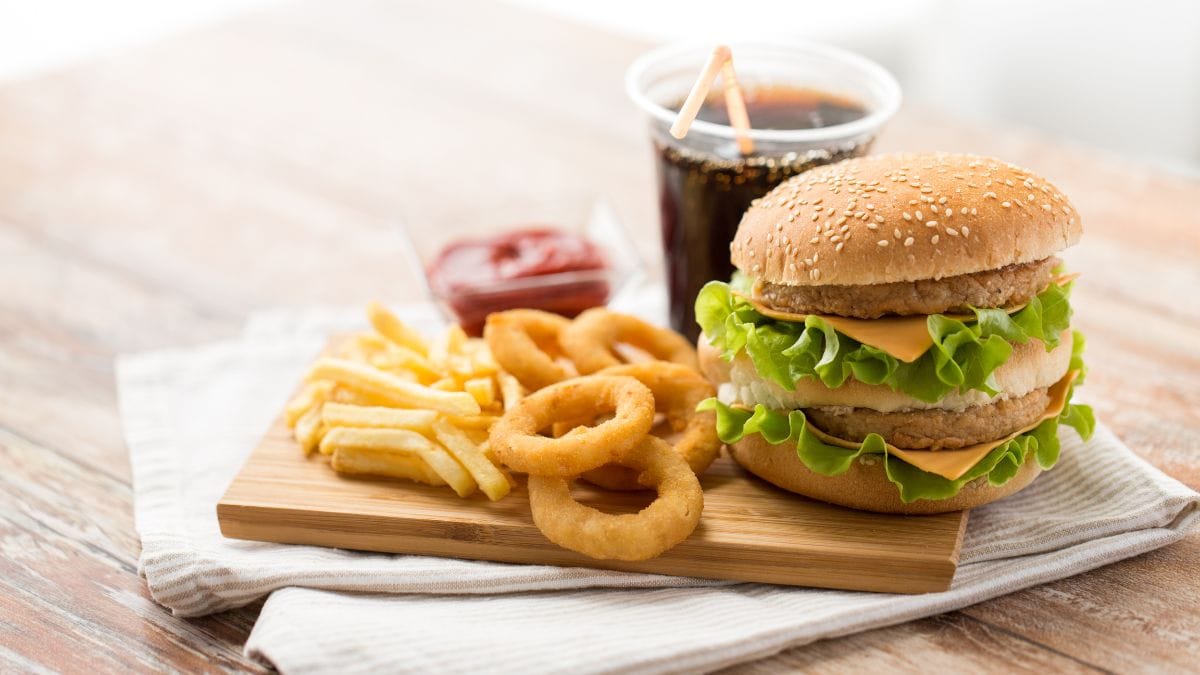Summary: A new study reveals that men consuming ultra-processed foods face a 29% higher risk of developing colorectal cancer, highlighting the urgent need to limit these inflammatory foods. 🚨
Table of Contents
Introduction
Colorectal cancer has emerged as a significant health concern worldwide, ranking as the third most common cancer globally. 🌍
As a nutrition coach, I’ve observed a concerning trend where ultra-processed foods dominate many people’s diets. Recent research published in the BMJ reveals a direct link between these foods and increased colorectal cancer risk, especially in men. 🔬
The relationship between diet and cancer risk has always intrigued me, and this new evidence strengthens my conviction about the importance of choosing whole, unprocessed foods. Let’s explore how ultra-processed foods affect our colorectal health. ⚡
How Do Ultra-Processed Foods Increase Cancer Risk?
The primary mechanism involves chronic inflammation in the gut. When we consume ultra-processed foods, they trigger an inflammatory response that doesn’t resolve properly. 🔥
According to Professor Timothy Yeatman from the University of South Florida, cancer behaves like a chronic wound that won’t heal. In my practice, I’ve consistently seen how processed food consumption correlates with elevated inflammatory markers.
These foods are typically stripped of beneficial compounds while being loaded with omega-6 fatty acids, particularly from vegetable oils. The imbalance between omega-3 and omega-6 fatty acids creates a perfect storm for inflammation. 🌪️
Research shows that tumors in colorectal cancer patients contain high levels of inflammatory molecules, especially those derived from arachidonic acid found in processed foods.
What Makes Ultra-Processed Foods So Harmful?
Ultra-processed foods lack the natural balance of nutrients found in whole foods. They’re often high in unhealthy oils, refined sugars, and artificial additives. 🏭
From my experience counseling patients, I’ve noticed that those consuming high amounts of ultra-processed foods often show signs of compromised immune function. The research supports this observation, showing that these foods suppress our immune system’s ability to fight potential cancer cells. ⚕️
A recent study using advanced LC-MS/MS technology found that colon tumors were filled with inflammatory molecules, with insufficient healing mediators. This imbalance creates an environment where cancer cells can thrive.
How Can We Reduce Our Risk?
The solution lies in returning to whole, unprocessed foods rich in omega-3 fatty acids and natural anti-inflammatory compounds. 🥗
I recommend my clients focus on consuming foods like fatty fish, avocados, nuts, and plenty of fresh vegetables. These foods contain specialized pro-resolving mediators that help balance inflammation.
Research suggests that making this dietary shift can significantly impact our body’s ability to maintain healthy cell growth and immune function. 💪
Wrapping Up
The evidence is clear: ultra-processed foods significantly increase our risk of colorectal cancer, particularly in men. By making mindful food choices and prioritizing whole, unprocessed foods, we can take active steps to protect our health. 🎯
Do you have questions about identifying and replacing ultra-processed foods in your diet? Feel free to drop your questions in the comments below, and I’ll be happy to help guide you toward healthier choices.
References
- Colon Cancer Foundation: Ultra-Processed Foods: A Risk Factor for Colorectal Cancer
- BMJ: Association of ultra-processed food consumption with colorectal cancer risk among men and women
- PubMed: Dietary patterns and colorectal cancer risk: a systematic review

